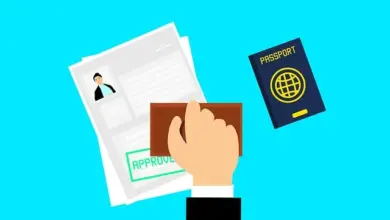How to Get a Recommendation Letter for University Applications

Applying to university can be an exciting yet daunting process. One of the most critical components of your application is the recommendation letter. A well-written recommendation letter can make a significant difference in showcasing your strengths, character, and potential as a student. However, obtaining a strong recommendation letter requires careful planning, thoughtful communication, and building meaningful relationships with your recommenders. In this article, we’ll explore everything you need to know about securing a compelling recommendation letter for your university applications.
Why Are Recommendation Letters Important?
Before diving into the “how,” it’s essential to understand the “why.” Universities use recommendation letters to gain insights into who you are beyond your grades and test scores. These letters provide a third-party perspective on your academic abilities, personal qualities, and potential for success in higher education. Admissions committees look for evidence of:
- Academic Excellence : How well you perform in challenging environments.
- Character Traits : Your work ethic, leadership skills, teamwork, and integrity.
- Growth Potential : Whether you have the drive and resilience to thrive in university.
A strong recommendation letter not only highlights these aspects but also adds depth and authenticity to your application.
Step 1: Choose the Right Recommender
The first step in securing a great recommendation letter is selecting the right person to write it. Not all recommenders are created equal—choosing someone who knows you well and can speak to your strengths is crucial.
Who Should You Ask?
- Teachers : Ideally, choose teachers from core subjects (e.g., math, science, English) or those whose classes align with your intended major. They should know you academically and personally.
- Guidance Counselors : If required by the university, counselors can provide a broader view of your high school experience.
- Mentors or Coaches : If applicable, mentors from extracurricular activities, internships, or community service projects can offer unique perspectives on your non-academic achievements.
- Employers : For professional programs like business or engineering, a supervisor from a part-time job or internship might be appropriate.
What Makes Someone a Good Recommender?
- Familiarity : The recommender should know you well enough to provide specific examples of your accomplishments and character.
- Relevance : Their role or expertise should relate to the program you’re applying to.
- Enthusiasm : A recommender who genuinely supports your goals will write a more passionate and convincing letter.
Avoid asking family members, friends, or anyone who doesn’t have firsthand knowledge of your abilities.
Step 2: Build Strong Relationships Early On
Recommendation letters are built on trust and familiarity. To ensure your recommender has plenty to say about you, focus on cultivating strong relationships throughout your academic journey.
Tips for Building Relationships
- Participate Actively in Class : Engage in discussions, ask thoughtful questions, and demonstrate curiosity.
- Seek Feedback Regularly : Show that you value their input by asking for advice on improving your performance.
- Take Initiative : Volunteer for group projects, extra credit assignments, or leadership roles within the classroom.
- Stay Connected Outside of Class : Attend office hours, participate in school events, or join clubs where they serve as advisors.
By investing time in these relationships, you create a foundation of mutual respect and understanding that will benefit you when it’s time to request a recommendation.
Step 3: Request the Letter Thoughtfully
Once you’ve identified potential recommenders, approach them with care and professionalism. Timing and etiquette play a vital role in ensuring a positive response.
When to Ask
- Start early! Give your recommender at least 4-6 weeks before the deadline to prepare the letter.
- Avoid last-minute requests, as they may feel rushed and produce a generic letter.
How to Ask
- In Person : Whenever possible, ask face-to-face during office hours or after class. This shows sincerity and respect.
- Via Email : If meeting in person isn’t feasible, send a polite and concise email explaining why you’re asking them specifically.
Sample Email Template
plaintextCopy
1
2
3
4
5
6
7
8
9
10
11
12
Subject: Request for Recommendation Letter
Dear [Recommender’s Name],
I hope this message finds you well. I am currently applying to [University/Program Name] and would greatly appreciate your support in writing a recommendation letter on my behalf. Your guidance in [specific subject/activity] has been invaluable to me, and I believe your insights would strongly support my application.
If you’re available, I’d be happy to provide any additional information, such as my resume or details about the program, to assist you in crafting the letter. The deadline for submission is [date], so please let me know if this timeline works for you.
Thank you so much for considering my request. I truly value your mentorship and would be grateful for your help.
Best regards,
[Your Full Name]
Step 4: Provide Supporting Materials
To help your recommender craft a detailed and personalized letter, supply them with relevant materials that highlight your achievements and aspirations.
What to Include
- Resume/CV : A summary of your academic and extracurricular accomplishments.
- Personal Statement : Share your essay or statement of purpose to give them context about your goals.
- Key Achievements : Highlight specific moments or projects where you excelled under their guidance.
- Program Details : Explain what the university values and how you align with its mission.
These resources enable your recommender to tailor the letter to both your strengths and the university’s expectations.
Step 5: Follow Up and Express Gratitude
After submitting your request, maintain open communication with your recommender while respecting their time.
Follow-Up Tips
- Send a gentle reminder 1-2 weeks before the deadline if you haven’t heard back.
- Offer assistance if they need clarification or additional information.
Show Appreciation
Once the letter is submitted, thank your recommender sincerely. A handwritten note or small token of appreciation goes a long way in maintaining a positive relationship.
Common Mistakes to Avoid
Even with the best intentions, students sometimes make mistakes that weaken their recommendation letters. Here are some pitfalls to avoid:
- Asking Too Late : Last-minute requests often result in rushed or vague letters.
- Choosing Based on Prestige Alone : A famous name won’t compensate for lackluster content.
- Not Providing Enough Information : Without context, recommenders may struggle to write effectively.
- Forgetting to Say Thank You : Failing to express gratitude can damage future relationships.



